Subscriber Benefit
As a subscriber you can listen to articles at work, in the car, or while you work out. Subscribe NowThere are a lot of reasons for attorneys to use expert witnesses.
Maybe it’s an accident reconstructionist who can piece together what happened at a crash site. Or maybe it’s a physician who can provide insight as to whether a doctor performed their job correctly in a medical malpractice case.
The number of expert witnesses and companies that provide those experts has grown by leaps and bounds in recent years, as attorneys look to cover their bases and bring the best case for their clients.
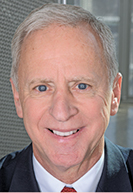
Lee Christie, a partner with Christie Farrell Lee & Bell in Indianapolis, has been an attorney for 41 years. In that time, Christie said he’s developed a long list of expert witnesses he can call on.
Christie’s firm use experts in just about every medical malpractice case that goes to trial, he said, ranging from treating physicians to consulting experts to retained experts. Half the time, he uses out-of-state experts in medical malpractice cases.
Expert witness use has changed over the last 40 years and has become a specialty area, Christie said.
“If you had asked me 25 years ago, I wouldn’t have said I have experts for just about every case,” he said. Likewise, the veteran personal injury attorney said he doesn’t remember many expert referral companies being around 25-30 years ago.
 In the past, Christie said attorneys would get a reference book filled with the names and contact information for expert witnesses. Now, just about every day Christie gets an email from companies that offer expert witnesses.
In the past, Christie said attorneys would get a reference book filled with the names and contact information for expert witnesses. Now, just about every day Christie gets an email from companies that offer expert witnesses.
One such referral company is the Pennsylvania-based TASA Group.
Najah Edmondson, The TASA Group’s marketing director, said during the pandemic, the company’s most requested experts were generally in medical fields, or those who had expert knowledge of nursing homes or hospitals.
Edmondson said the number of experts TASA refers to Indiana firms is small compared to other, larger states.
“It seems that we average about 30 cases in Indiana per year,” she said. “Also, we check the expert’s highest degree, and if they do not have a degree, we check their license. It is up to the attorney to qualify the expert for their case.”
Training and truthfulness
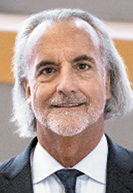
Dr. Robert Gregori served as director of physiatry with OrthoIndy through 2006.
While there, he co-treated trauma patients and managed their rehabilitative and pain management needs, while the surgeon addressed their surgical conditions.
In 2009, Gregori started Indianapolis-based Objective Medical, a forensic medical company, and now dedicates the majority of his practice to medical legal consulting.
Gregori estimates he has testified more than 250 times as an expert witness.
“I’m proud of the fact (that) I get referrals,” he told Indiana Lawyer.
As a treating physician, Gregori was first deposed in a case about four-to-five years into his career.
About half of the cases he provides expert testimony in involve workers’ compensation issues, while the other half are personal injury issues.
Being a physiatrist means Gregori treated patients with catastrophic brain injuries, spinal cord injuries and physical disabilities. He also has a background in providing rehab and pain management for musculoskeletal and neurologic injuries.
“As a physiatrist, we are uniquely qualified to serve as an expert,” he said.
To prepare for serving as an expert, Gregori has taken classes with SEAK, an organization that provides training and seminars.
Now that he’s been providing expert witness services for a while, Gregori said he’s been able to mentor younger physicians that express interest in doing it.
Whether he’s hired by a plaintiff’s attorney or a defense lawyer, he said he always tells them that they’re going to get his honest opinion.
“I’m very comfortable on the stand because of that,” Gregori said.
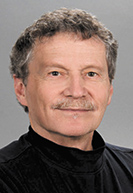
William Simonson is a pharmacist, longtime university professor and Oregon-based pharmacy expert witness with more than 30 years of experience.
Simonson noted that he is not a full-time expert witness but has been retained for about half a dozen cases this year alone. His services as an expert have been used in 20 different states.
“There are some people that do this as a profession,” he noted.
Simonson has a website where people can reach out to him if they want to use him as an expert.
“It’s a fairly big industry. There are experts in things you probably couldn’t imagine,” he said.
Finding an expert
Christie said he and attorneys at Christie Farrell Lee & Bell generally find their own experts and don’t rely on referral companies.
“I prefer to know the expert and know how they’re going to testify and how they’re going to come across,” Christie explained.
He has also found expert witnesses through referrals from other attorneys whom he trusts.
He said attorneys have to make sure expert witnesses interact well with them.
“I like an expert that gets to the point,” Christie said.
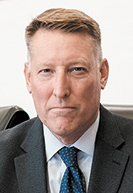
Christopher Lee, the Defense Trial Counsel of Indiana’s president and a partner at Dinsmore & Shohl LLP in Indianapolis, said he prefers to use local experts in cases, as he feels that they tend to relate better to juries.
Lee said every attorney seems to have their own set of experts.
Typically, Lee said he provides little preparation to experts he hires for cases. He said he hires a lot more experts to help him understand the subject matter of particular cases than he does to testify in front of a jury.
“They’ve forgotten more about the topic than I’ll ever know,” he said.
When he’s taking the deposition of an expert, Lee will do his own research and talk to his expert to learn the topic.
In one recent case, for example, he hired an entomologist from Purdue University to teach him about insects.
What does it cost?
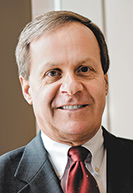
Jim Bleeke is an attorney and shareholder with Bleeke Dillon Crandall in Indianapolis, a medical malpractice defense boutique firm. About 90% of his cases involve medical malpractice, Bleeke said, and about 80% are resolved through the medical review panel process.
According to the Indiana Department of Insurance, either party in a case may request the formation of a medical review panel by serving a request upon all parties and the department’s commissioner. Filing a proposed complaint does not automatically result in a panel being formed.
Throughout the process, Bleeke said costs have gone up for expert witnesses, particularly over the last four years. Doctors can cost as much as $1,000 per hour, for example, while panel doctors are around $300 per hour.
Christie also said he’s seen fees for expert witnesses skyrocket in recent years. Some experts can make $10,000 to $15,000 on a case, depending on how many hours they are used.
In his own experience, Christie said there have been cases where his firm has paid an expert more than $100,000.
He pointed to a lawsuit seven years ago in which expenses for a case — which involved a malfunctioning garage door that resulted in a person becoming a quadriplegic — climbed over $400,000.
“In a case like that, you can justify spending that kind of money because you may get damages back,” Christie said.•
Please enable JavaScript to view this content.
